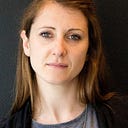The Top 6 Behaviour Change Books For 2017
Never have books on creating positive change for yourself and for those around you felt more relevant.
2016 will long be remembered as the year of Brexit, Trump, and the year we lost some of our most unique creative powerhouses and genius talents. It was a year of change for many and recent events have placed us within a shifting and completely new context within which we must now operate and thrive.
Meanwhile it was a cracking year for literature. Some much-needed bright spots and inspiration in what, for many, were challenging times. From the behavioural science of how to have a good day, to insights into the attention economy and how to overcome it. My books for the year ahead each address humans and change, and how to have agency in a rapidly changing world.
Each can be read on two levels. First as an incredibly fascinating insight into behavioural sciences. Second, as an indispensable toolkit for work and life. I hope you enjoy reading them as much as I have. Are there any I’ve missed?
1. Powerful and beautiful in its simplicity, Liminal Thinking refers to a mindset of creating change. It’s a set of skills that anyone can learn. The work of Dave Gray, who can usually be found, pen in hand, using illustration and ‘visual thinking’ as a way to unblock teams who’ve become stuck, the book is based around the premise that beliefs form the basis of everything people say, think, and do. When people change their beliefs, they change their behaviour, which changes their lives.
“Why do some people succeed at change while others fail? It’s the way they think! Liminal thinking is the art of creating change by understanding, shaping, and reframing beliefs.”
2. How to Have a Good Day: How we spend our days is, of course, how we spend our lives, and Caroline Webb has grasped this adage with both hands to create an insightful and practical guide to spending days well.
Blending the latest findings from behavioural economics, psychology and neuroscience, the book distills scientific research into tools and tips to transform your working life. Serving a dual purpose as an overview of recent research findings, and an indispensable manual for life, the book firmly delivers on its promise.
3. The Gene: Not strictly a behaviour change book, The Gene goes deeper, to help us understand the code at the very core of our being. Siddartha Mukherjee has created a magnificent history of the gene and a response to the defining question of the future: What becomes of being human when we learn to read and write our own genetic information?
Skilfully blending science, cultural history, and personal narrative to tell us the story of one of the most important conceptual breakthroughs of modern times, Mukherjee explores the quest to understand human heredity and its surprising influence on our lives, personalities, identities, fates, and choices. He touches on the dark side of IQ with some unexpected insights.
4. Payoff: Temptation is all around us. But what motivates us to act?
In Dan Ariely’s latest book Payoff, he investigates motivation, our partial blindness to the way it works, and how we can overcome this gap. Never afraid to roll up his sleeves and dig deep with his research, Ariely goes right to the root of motivation with studies that range from Intel to a kindergarten classroom.
He explores questions like: Can giving employees bonuses harm productivity? How does your sense of mortality impact your motivation? And as always with Ariely’s writing, the answers are not what we’d necessarily expect…
5. The Attention Merchants: How often have you sat down with a plan, say, to write an email or buy one thing online, only to find yourself, hours later, wondering what happened? If this resonates, then you’ll find Tim Wu’s latest offering a fascinating read.
Famous for coining the phrase ‘net neutrality’ back in 2003, even Tim Wu himself couldn’t have quite predicted the implications of facebook and other content giants breaching it.
He brings up the work of the psychologist and philosopher William James, who “held that our life experience would ultimately amount to whatever we had paid attention to.”
6. Misbehaving: Part memoir, part text book and generally very entertaining, Thaler’s inimitable style makes for an excellent introduction to the story behind Behavioural Economics. From the early days with Amos Tversky, to the gathering traction and credibility the field has today, Thaler weaves personal stories with academic findings and case studies, to bring us a subversive history of his profession, with lessons in Behavioural Economics as a side effect. Perhaps that’s the point..
Tags Behavioural Economics, Psychology, Behaviour Change, Liminal Thinking
If you enjoyed this post and you’d like more like this direct to your inbox, you can sign up to The Mindset Co mailer here. A curated round-up of the latest in behaviour change, business psychology and the future of work.
